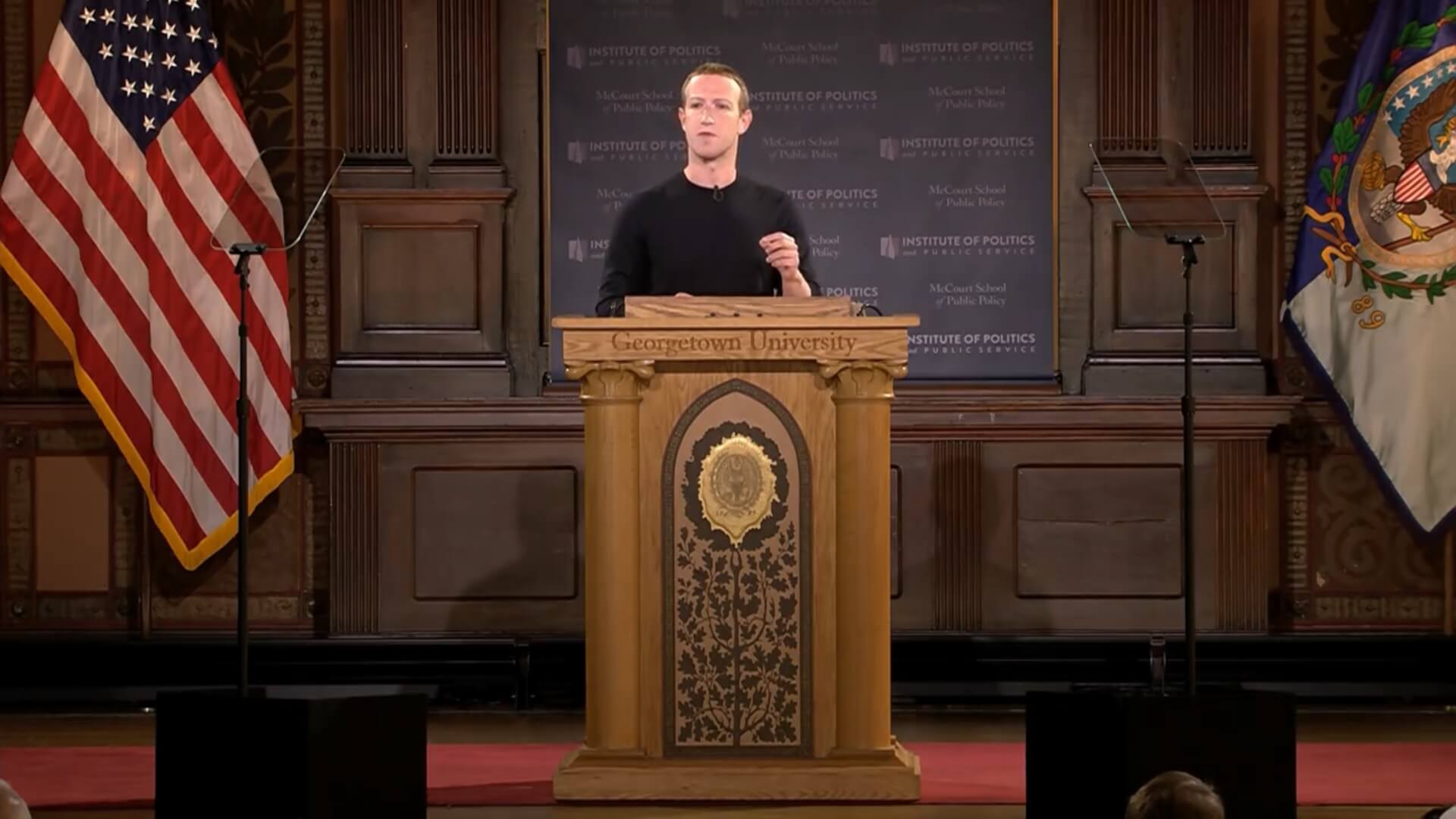Why it matters: Facebook has been under fire in recent times for not doing enough to curb fake news, disinformation campaigns by state actors and third parties, as well as prevent violent content from becoming viral on its platform. CEO Mark Zuckerberg believes social media should give everyone as much freedom of expression as necessary and warns that China is creating its own internet based on different values. He argues that Facebook is a champion of free speech and that the company's decisions have helped create an additional power structure in society.
During a speech at Georgetown University this week, Mark Zuckerberg argued that Facebook is a neutral platform and that the best way forward is to let politicians lie in political ads. If that sounds confusing, it's because Facebook is in a strange position where it profits off of misinformation at the same time it's trying to be the champion of democracy and free speech.
Facebook's CEO explained that the decision not to include political ads in its fact-checking program was not so much financial as it was a courtesy to its users who need a voice. He referred to local candidates, advocacy groups and up-and-coming challengers as prime examples of voices that could use social media as an inexpensive way of getting the same public attention enjoyed by incumbents.
His proposition here is to "monitor who is posting the content rather than the content itself," and use that as a way to make those people directly accountable for what they say. This means that people who want to run political ads will have to provide Facebook with proof of their identity and US citizenship, which in theory could serve as a deterrent for bad actors.
Zuckerberg invoked the First Amendment and the struggle for civil rights several times, going as far as linking his mission of freedom of speech to Martin Luther King's efforts. King's daughter took to Twitter to explain that disinformation campaigns created the atmosphere for King's assassination.
The 35-year-old CEO thinks too much responsibility on moderating speech is being placed on the shoulders of tech companies like Facebook. He warned that many people are calling for social networks to censor opposing views in the hopes of ensuring the political outcomes they deem important.
He also believes China is slowly cultivating its un-American values across six of the top ten largest internet platforms, and offered the example of TikTok, a fast-growing Chinese social media app that censors content related to the Hong Kong protests. Apparently, Facebook's American roots are the reason why it is pro-speech, and Zuckerberg thinks it's his company's mission to set an example of what an open internet should be like.
However, it's worth noting that Zuckerberg talks about 'speech' when arguably one of the more pressing aspect that critics have attacked is 'reach'. Facebook makes money by tuning its algorithms to promote content that drives user engagement, so it always has to fix things after the fact. Furthermore, Zuckerberg said in a Fox interview that while he sees the need for policy makers to craft legislation on privacy and data portability, he doesn't think breaking up big tech companies would help in any way.
In the meantime, Oregon Senator Ron Wyden is proposing a new law that would hold executives like Zuckerberg personally accountable for the wrongdoings of their companies, with harsh penalties that include jail time.
